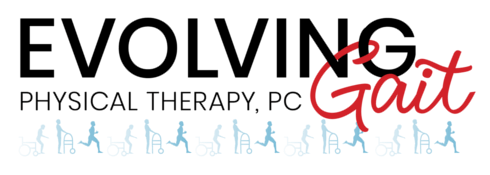Are You Living with a Neurological Disorder?
It is no secret that neurological disorders can be limiting and debilitating, forcing you to find new ways to manage your daily life.
While this can be frustrating, physical therapy can help improve your function so you can get back to living your life on your own terms!
As stated by US News: Health,
“Physical therapy is a good fit for many people with neurological disorders because they may have problems with their movement. These problems are often caused by the disorder. Depending on the type of neurological condition someone has, movement problems can get worse as the disease progresses.”
Our innovative care strategies at Evolving Gait Physical Therapy will help you find quick relief. For more information on how physical therapy can benefit you, contact us today.
Common neurological disorders treated with PT:
There are a vast amount of neurological disorders that physical therapy can treat. Some of the most common include:
1. Parkinson’s Disease.
Parkinson’s Disease is a progressive disease that affects the central nervous system and the ability to coordinate movement in the body. Since Parkinson’s Disease affects many areas of the brain, symptoms can vary in individuals and progression can be either mild, moderate, or aggressive. Physical therapy, occupational therapy, and speech therapy are essential for people with Parkinson’s Disease.
While there is no cure for Parkinson’s Disease currently, a tremendous amount can be done to improve one’s function and maintain mobility. In coordination with your physician, rehabilitation focuses on improving movement, safety, independence with activities, transfers, speech, and swallowing.
2. ALS (Lou Gehrig’s Disease).
Amyotrophic Lateral Sclerosis (ALS) is a progressive neurological disease that typically begins in the hands, feet, and extremities, then progresses centrally. As the disease progresses, it affects walking, use of the arms, speaking, swallowing, and breathing muscles. While there is no cure for ALS, maintaining independence and function as long as possible is the goal of the rehabilitation team.
Physical therapy, occupational therapy and speech therapy typically coordinate as a team for people with ALS, depending on their severity of symptoms and progression of the disease. Physical therapy focuses on improving and maintaining range of motion, strength, stamina, walking, and balance. In addition, our physical therapists will focus on making recommendations for adaptive equipment such as canes, walkers, wheelchairs, braces, and other devices.
3. Spinal Cord Injuries.
Depending on where a spinal cord injury occurs, it affects various areas of the body. A spinal cord injury may be complete, causing full paralysis of the muscles below that level, or partial, causing various symptoms or partial paralysis. Areas that are paralyzed have a tendency to lose range of motion, atrophy, and can affect posture. Maintaining posture and upper body strength is critical for spinal cord injury patients, in order to assist with breathing and digestion
Rehabilitation of individuals with spinal cord injuries can be a complex process, depending on the severity of the injury. The goal of PT is to promote as much independent living as possible, maintain range of motion, improve strength in the upper body and postural muscles, fit and coordinate adaptive equipment, as well as work with training family or assistants in proper safe transfers. Our therapists work closely with you and your family to perform thorough assessments of your capabilities and formulate a treatment plan that will maximize your function.
4. Multiple Sclerosis.
Multiple Sclerosis (MS) is a neurological disease that causes the body’s immune system to abnormally attack the covering of the nerve cells, called myelin. This causes scarring and decreases the nerve’s ability to transmit signals properly.
Multiple sclerosis requires a multi-discipline approach with medical and rehabilitation management. The goal of managing MS is to decrease the severity of symptoms and make adaptive lifestyle changes to cope with the progression of the disease. Physical therapy helps to address weakness, range of motion loss, balance issues, transfers, and walking. It can also help to significantly improve function and independence for MS patients. We help patients accommodate changing needs every step of the way, by teaching them how to use assistive equipment, such as canes and other devices.
5. Stroke (CVA).
A stroke is referred to as a Cerebrovascular Accident and is the sudden death of brain cells due to lack of oxygen. This occurs when the blood flow to a particular portion of the brain is restricted from a clot or bleed. The severity of symptoms and recovery period are dependent on where the stroke occurred in the brain, how extensive the damage was, and the duration of the stroke.
Physical therapy is a vital part of the recovery of a person who has suffered a stroke. A thorough evaluation is done in various stages of the rehabilitation process to determine progression in strength, transfers, walking, balance, range of motion, and safety.
Our physical therapists approach the care of each person as an individual, adapting the best rehabilitative process to each case. Occupational therapists work very closely in the process to improve upper extremity and hand function. Speech therapists work with muscle deficits of speech, swallowing, and facial expressions. In addition, cognitive challenges can help increase the functioning of the brain to problem-solve many of life’s daily activities.
Schedule your consultation today:
If you are suffering from any of the above neurological disorders, or another one we didn’t list, don’t hesitate to Evolving Gait Physical Therapy!
Our physical therapists are dedicated to helping you regain your optimum levels of function so you can live your life as independently as possible. Reclaim your life by scheduling a consultation today!


